KIN: Director duo Jonathan and Josh Baker’s Sci-fi drama
If brothers Jonathan and Josh Baker, directors of the sci-fi feature film KIN, hadn’t delved into filmmaking nearly 15 years ago, you’d probably find them attempting perilous physical feats for Likes on social media.
“There’s a part of me that’s a little sad that parkour wasn’t a popular thing when we were growing up because if it was, we would have been on Instagram jumping across buildings,” says Jonathan, one half of the directing duo known as TWIN.
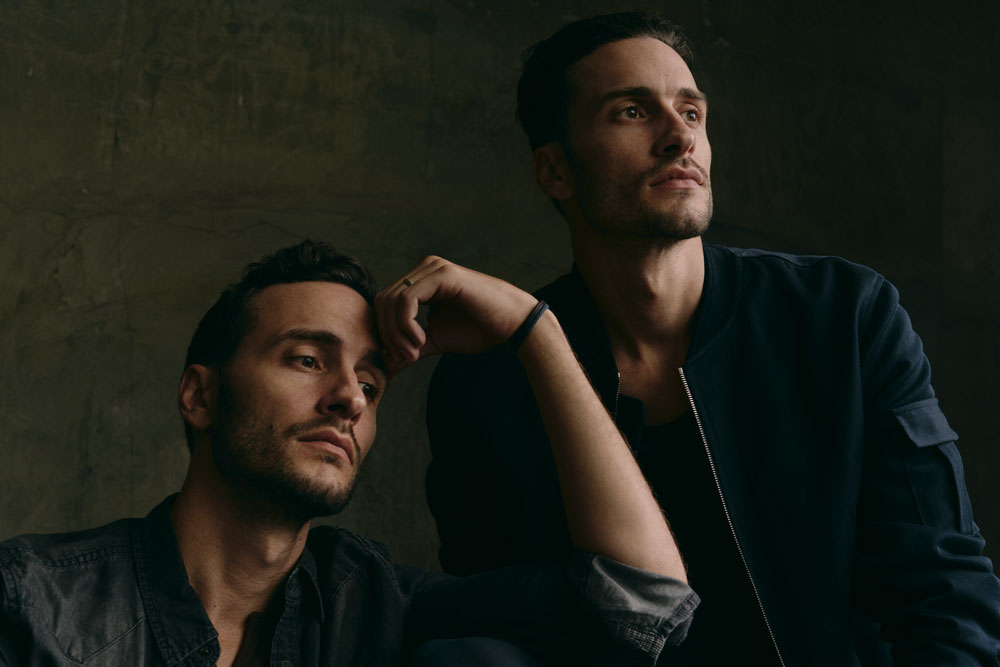
Instead, They set their sights on directing, moving from Sydney to New York in 2007, working on music videos and commercials. Through a decade of professional stagnation, The Brothers developed the short film “Bag Man”, a 15-minute film with a nameless cast of characters whose protagonist, a Harlem-bred African-American preteen, ventures upstate with his mysterious duffel bag to carry out an undecidedly valiant mission.
“Bag Man”, which premiered at 2015’s South by Southwest to great acclaim, quickly evolved into KIN under the joint tutelage of 21 Laps Entertainment, the production company associated with 2016 Academy Award-nominated film Arrival and the Netflix breakaway hit Stranger Things. Both KIN’s cast (James Franco, Zoe Kravitz, Dennis Quaid, Jack Reynor and emerging talent Myles Truitt as the film’s lead) and the filmmakers’ gritty, independent sensibilities, coupled with a predisposition for classic 80s sci-fi and coming-of-age cinema, are sure to attract discerning moviegoers.
How did you decide which elements of “Bag Man” to incorporate into KIN and which to leave out?
Josh: That was one of the toughest things about it. We didn’t just assume that there was a feature-length story to be told there. The short film already had a couple of things going for it: it was mostly a tone piece; it was about trying to make something feel restrained and quiet. Our lead character doesn’t say a word throughout the whole film, which is very much on purpose. And then it was about clashing that quietness with a surprise ending so the audience maybe think that they’re getting one thing, but then you give them another.
When we were putting the concept for feature together, I guess we decided we wanted some more meat on the bone with regards to the characters and where the story was going. We decided that we wanted to tell a story about family. And specifically about unconventional families. So this story is about brothers, and that was our jumping off point. Quite quickly, we realised that the unconventional structure of having an African-American lead character who has a white older brother after being adopted into a Polish family in Detroit was really interesting.
Jonathan: There’s a lot of things in the movie, in KIN, that are about acceptance, and a lot of themes about what makes a family, or what makes brothers. Is it blood, or is it something beyond that? Is it more experience and love? A lot of those things weren’t in the original short film but as soon as we started to talk about what KIN would become, it became apparent that those fraternal themes would be in there.
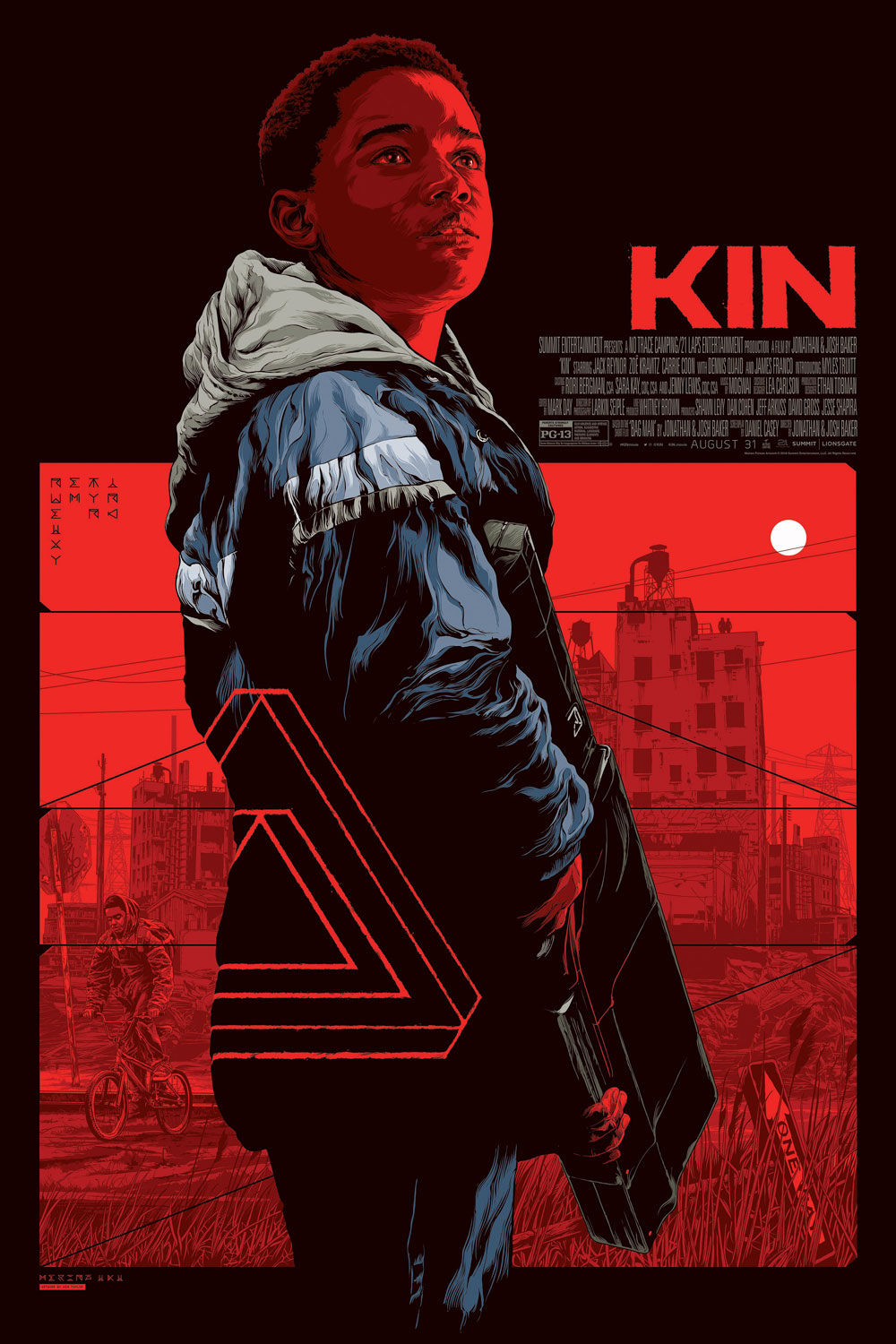
What are some of the challenges of working as a collaborative team?
Josh: There’s plenty of challenges. As brothers, we’ve gotta be really careful that we have a unified front when it comes to the idea of being a directing duo.
Ego is a huge part of being a director – it really is. It always has been, and I don’t think it’s going anywhere. You’ve just gotta be careful of that and realize that you’ve got someone else who’s on the same level as you and who has to be a collaborative part of making decisions.
Jonathan: The good thing about having a directing partner is that you have this inbuilt level of collaboration and patience and respect – mutual respect – so I think it’s very easy for that to then affect everyone else. Everyone begins to realise that this is how these guys work, this is the kind of set I’m on. They see us as the kind of directors who listen a lot, who accept other people’s’ ideas.
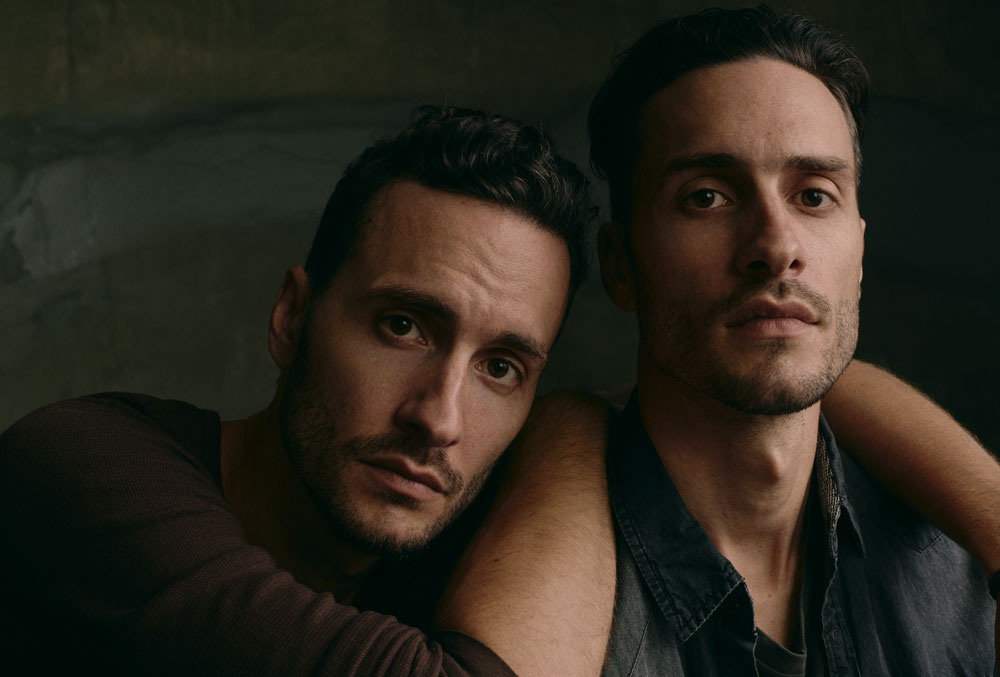
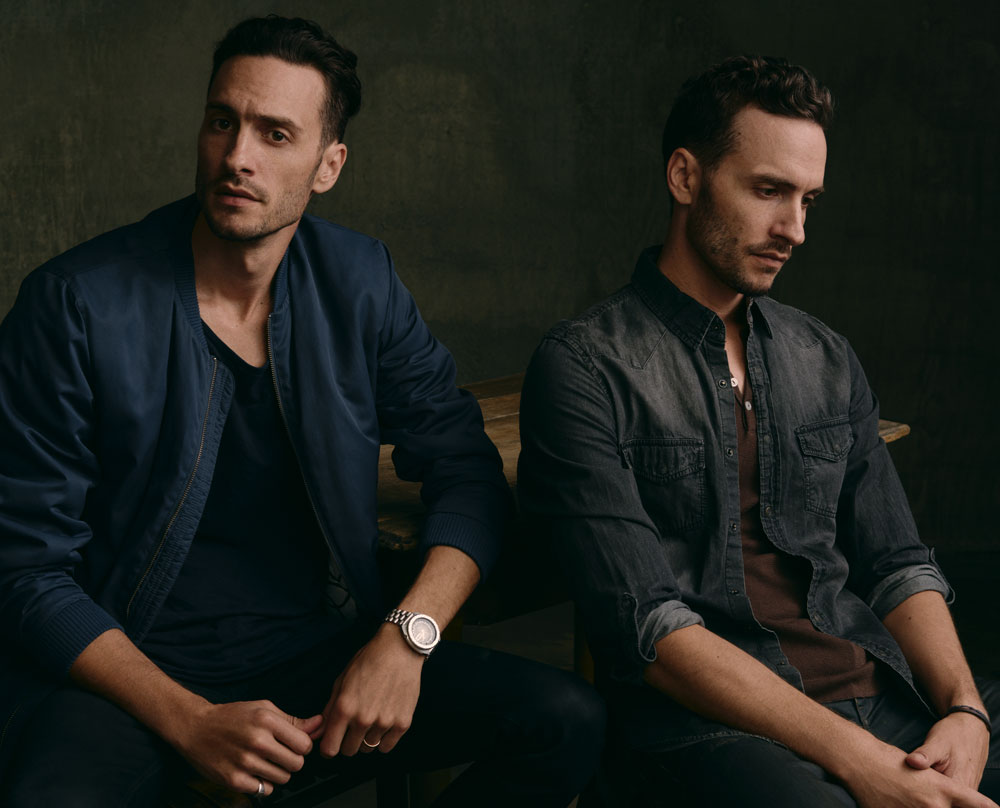
What advice would you give yourself ten years ago?
Josh: I think the main thing would be trust your instincts. Having a twin brother as a director helps a lot when it comes to making decisions. I think it helps to have someone next to you so you can talk stuff out, come up with the right solutions and make the right decisions on what to do with certain things. A lot of where we are right now just comes from instinct. All a director really has is their personal sense of taste and that ability to follow their gut. We were offered films years ago, and I’m really glad, at this point, that we didn’t take them. Just because of this film that we made, KIN, is very much based on who we are and the things we love.
Jonathan: KIN is a movie that we made for us, and we genuinely believe that if you do that – if you make a film for yourselves and a movie you would want to see – then there is going to be a very strong fan base of people who agree with you. It may not be for everybody, which is not something that everybody involved in the film wants to hear or wants to say, but the truth of the matter is that you never want to make something from a false place, trying to please everybody. You want to really have it come from an authentic place and a human place.
Josh: This movie is undeniably ‘us’.
What is your FAULT?
Jonathan: I think one of our faults is caring a little bit more about art and about sophistication and about credibility than commerce. And I think that’s a very challenging dynamic to balance in what we do. Pleasing people, while pleasing yourself, is a very challenging kind of way to live, and to do.
Josh: I guess if we didn’t operate that way then we would be much richer gentlemen, and at different times of the week, I look back and say, ‘did we make the right decision based off money?’ But I think I’ll always choose something that feels honest to us over financial gain. And sometimes that feels like a fault, but hopefully, it’s not.
Jonathan: …and we hope – that KIN is an example of hope. But at the end of the day, if for some reason it doesn’t connect, we’ll feel good within ourselves as directors and as filmmakers that we made the honest choice in something that speaks to us as humans. That’s the most important thing.
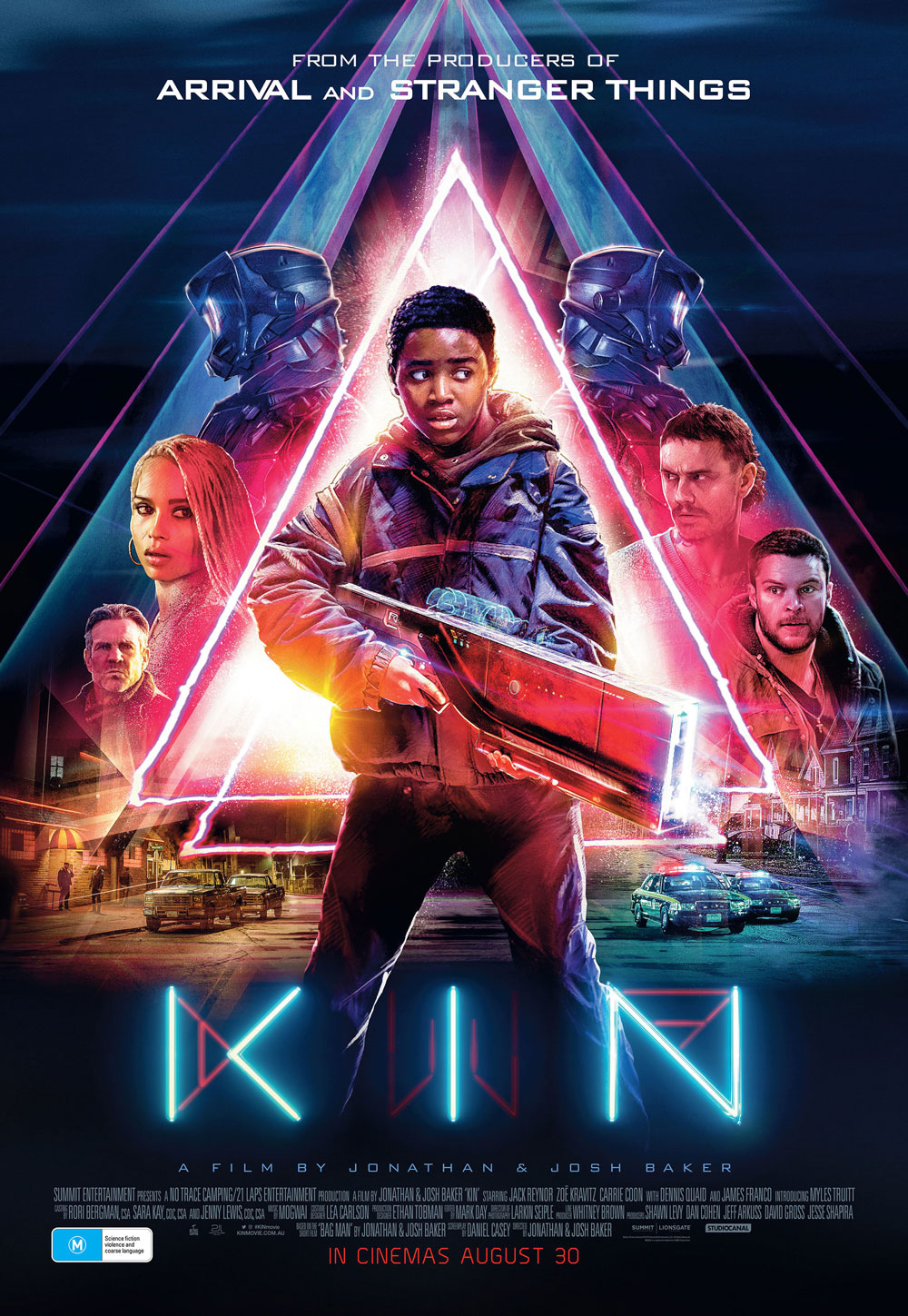
KIN is out now in Cinemas everywhere. See local listings for details.